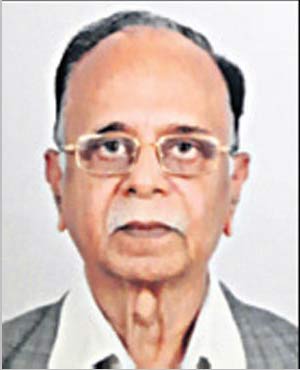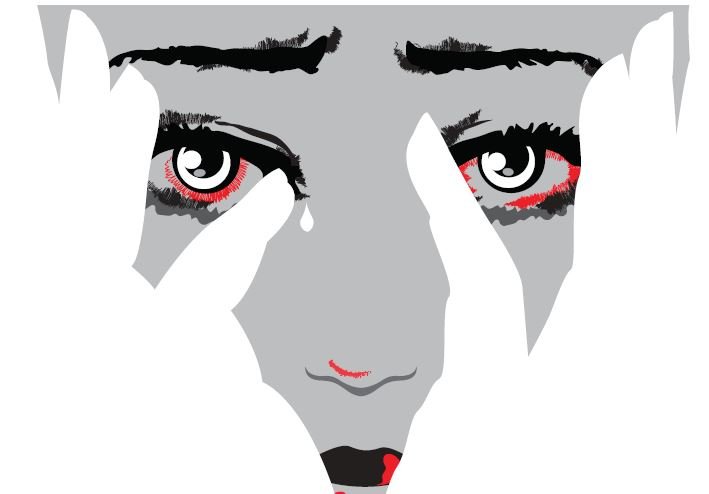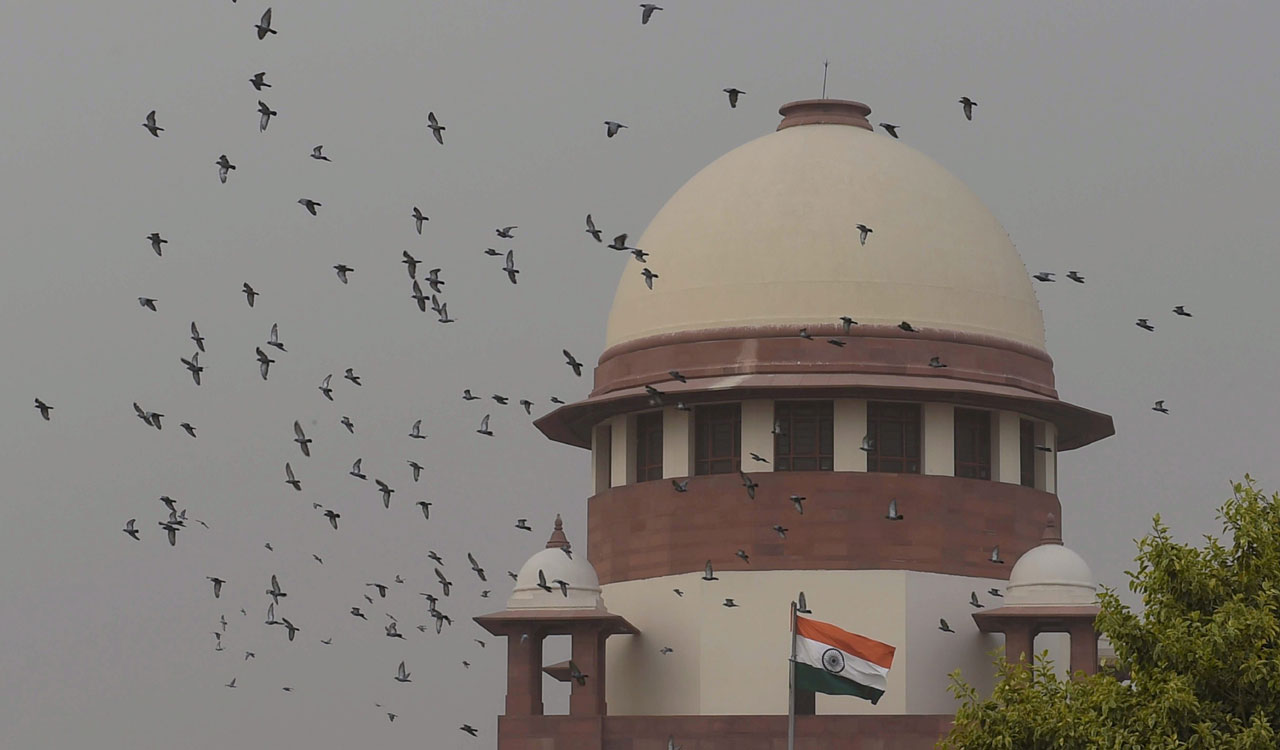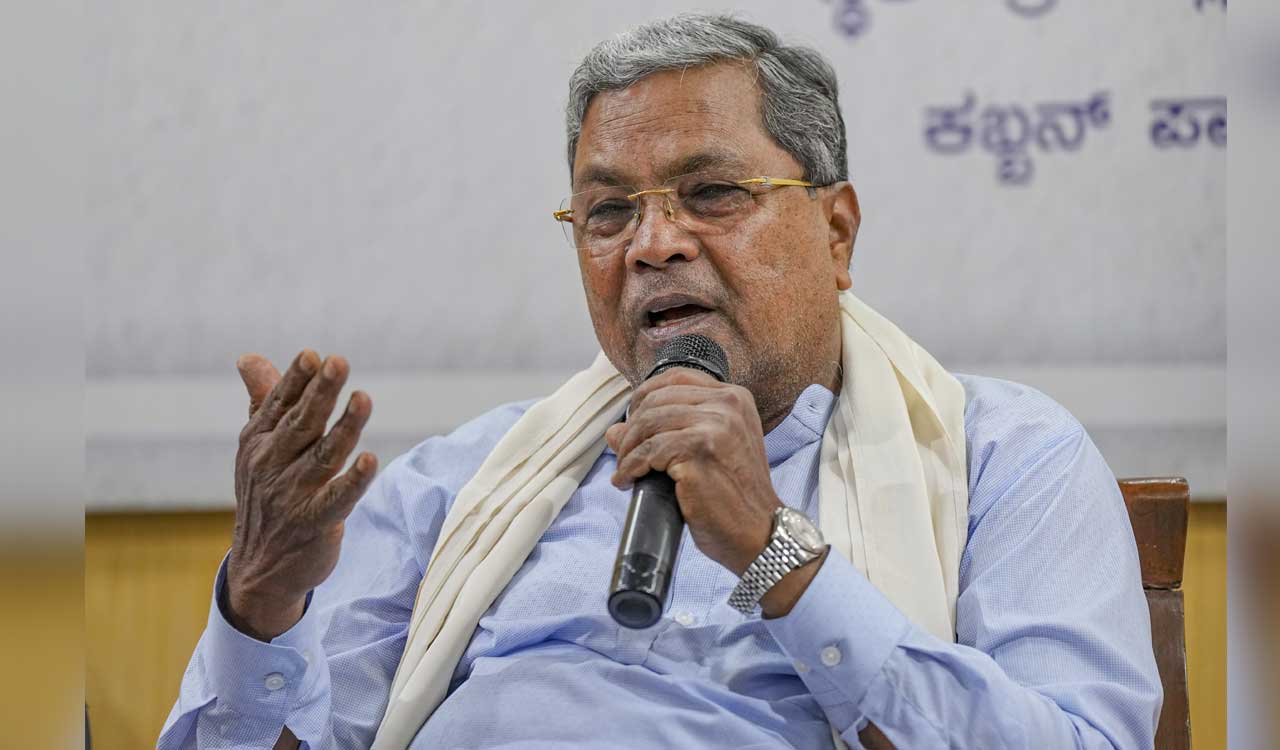Lack of justice and loss of faith
Crimes grow not because of population growth but due to government’s inability and unwillingness to check them

The Constitution in its preamble states, that “the state should secure justice to its citizens – social, economic and political.” It did not mention about criminal justice, which is somewhat inexplicable, since criminal law and its sub-systems predate the constitutional document.
For realisation of criminal justice, there exists a large body of laws, police, judiciary, prison system as well as administrative departments connected to it.
The importance of criminal justice, and law and order in the governance of state can be judged from the fact that Donald Trump, Republican party candidate for the USA presidency, made law and order as his party’s agenda for 2020 Presidential Election.
Crime and Violence
Crime control essentially involves the protection of lives and liberties of citizens. Crime and violence, according to late Justice P Chenna Kesava Reddy, former Chief Justice of AP High Court, “is as old and primordial as the sound of surf on the rocks at the sunset”. The common man, he said, is more concerned about criminal law.
Albert Einstein observed that the world becomes a difficult place to live in not just because of people who do evil but also because of people who let it happen. The phrase ‘let it happen’ means affording protection to the evil done by those who are authorised by laws to check them and punish.
Millions of cases get reported annually. In addition to crimes, an equal number of wrongful commissions and omissions by political, judicial, police and administrative establishments are reported but they go unchecked. Societies harbour criminal elements in their bosom and when the criminal elements get protection from the “establishment”, the right place for a just person, according to Thoreau, is a prison.
The state by default or design, through a plethora of investigating agencies such as police and tax authorities, is guilty of injustice for not taking cognisance of an “offence” to begin with in a number of cases, of not doing honest investigation and of not following up criminal trials in the right spirit. The state is also accused of “inaction” in the face of “mob violence” in several cases of communal and other types of violence that took many lives.
Wrongful Action
The state is also accused of wrongful action of using disproportionate force killing hundreds of law violators (police engagement with unlawful elements). Thus by its omissions and commissions, it is not able to punish the evildoer nor is it able to protect peace-loving citizens from the criminal elements in society.
Deterrent punishments imposed by courts on criminals is an exception than a rule. Late Muhammad-bin-Mohammed, a retired IPS officer and a former Ambassador to Saudi Arabia, observed that a penalty in Islam is considered an act of mercy for it expiates the criminal of the guilt of offence and also protects society from evildoers.
A deeper scrutiny of case disposals (not mere court disposals) of investigating agencies will disclose superficial and dishonest investigations and disposals. We need to involve civil society in overseeing such disposals by all investigating agencies to check injustice in investigations and disposals. In the same way, civil society needs to be associated with the judicial decision-making process at the stage of awarding quantum of punishment (jury system) and while granting ultra liberal bails and stay orders.
The state theoretically is a dispenser of justice. But when it fails or disposes of disproportionate volume of injustice in criminal investigations and trials, the common person loses faith.
General Misconception
As a dispenser of criminal justice, the unelected institutions of police, judiciary, CBI, CID, Anti-Corruption Bureau, etc, play a more important role than the political establishment. There is a general misconception about political influence on the subject. There is no legal provision that a Chief Minister, Minister, MLA, MP can supervise crime reportage or investigation or their trial and conviction. Not even the Home Minister has such power of superintendence.
But it’s a democratic practice that investigating and law enforcing agencies are accountable for their acts of omission and commission. In that scenario, the Ministry has a role to call for accountability. But day-to-day administration is not their legal role.
This position holds good in respect of law and order subject as to when to make preventive arrests, whom to make, when to promulgate Sec 144 of CrPC, curfew, etc, as these are under the discretion of police and District Magistrate. The quantum of force to be used in law and order situations is again a matter left to the police.
Accountability and transparency are critical for a functional democracy. While the political class is accountable in periodic elections, the same is not the case with unelected institutions, including the judiciary. According to Article 53, unelected institutions are stakeholders in the exercise of state power. But there is no accountability law in place in the country.
A Sad State
There is a misconception that growth of population, lack of funds and equipment to police result in crime waves. This is not the case. The equipment needed by law in enforcing agencies are honesty, efficiency and impartiality in order to deliver criminal justice. Crime rate will not grow due to population growth. It rises because crime population is going largely unpunished.
Law and its provisions are like a double-edged sword, which can be used for public interest and also misused in selfish interests and the interests of the governing class. For example, the crime of corruption and tax evasion grows not because of population growth but due to government’s inability and unwillingness to check them.
It is reported that there were 3 lakh cases of tax disputes pending, two-thirds of it in the jurisdiction of Central Bureau of Direct Taxes (CBDT) and the rest in courts involving an amount of Rs 4.36 lakh crore. The CBDT does not make much effort to liquidate pendency in its own jurisdiction while it loses 70% of the cases brought before courts/tribunals (as on 2015).
Court delays are yet another factor that breeds injustice. Justice delayed is justice denied. It takes a lifetime and a large purse for matters to settle in courts. The disproportionate assets case of N Chandrababu Naidu is pending for filing FIR (initial accountability) for the last 15 years. It is a sad state of affairs in criminal justice.
(The author is a retired IGP)
Now you can get hand picked stories from Telangana Today on Telegram everyday. Click the link to subscribe.
Click to follow Telangana Today Facebook page and Twitter .
Related News
-
Modi, Macron vow deeper defence, trade partnership
2 hours ago -
Sports briefs: Dharani, Tapasya clinch honours
2 hours ago -
Man arrested for cultivating ganja plants in Telangana’s Adilabad
2 hours ago -
Second successive win for Titans in Samuel Vasanth Kumar basketball
2 hours ago -
Women councillors allege misconduct by Congress in Kyathanpalli
3 hours ago -
Gauhati Medical College doctor lodges FIR alleging harassment by principal
3 hours ago -
Two FIRs filed in Chikkamagaluru after week-long stone pelting on house
3 hours ago -
Viral video shows SUV hitting biker in Dwarka, teenage driver detained
3 hours ago





